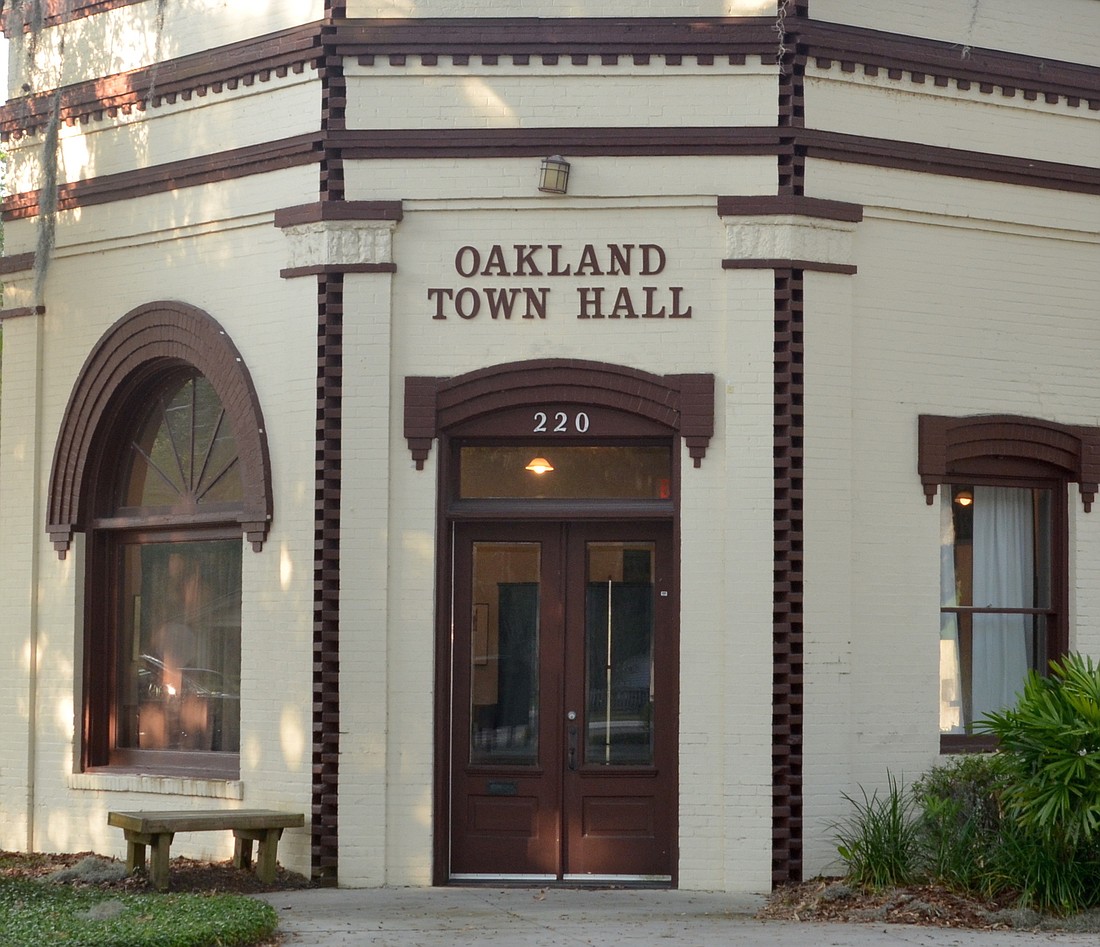- December 18, 2025
-
-
Loading

Loading

The town of Oakland is making strides toward providing non-potable water to residents and businesses to meet irrigation demands, and the Town Commission heard an update on the progress at its May 11 meeting.
Public Works Director Mike Parker said stormwater reuse is the only reasonable choice — reclaimed water, or processed sewage, is not a feasible option for the town, he said, because it was either cost prohibitive or treatment providers said they couldn’t handle demands above their own.
The 2006 Consumptive Use Permit issued by the St. Johns River Water Management District required the town to use a lower-quality water source for irrigation, but that has been a challenge, Parker said. Since 2013, all new construction in Oakland has included the installation of separate irrigation system piping.
In the Oakland Trails neighborhood, construction in 2016, 305 homes were placed on the irrigation network with just one connection, which makes the possibility of alternative water a probability, Parker said.
For the last five years, staff has worked to locate space for a treatment facility. The 5-acre project site is town-owned property in the Hull island development to the east of Hull Island Drive. Parker said the estimated cost is $3.2 million.
“It’s not a ‘nice to have,’ it’s a ‘need to have,’” he said. “It’s mandated by the state. … We’re going to go after grants and legislative monies.”
An increase in water impact fees on new construction recently more than doubled in anticipation of this project, he said.
CPH Engineers will serve as project manager.
SEPTIC-TO-SEWER PROJECT
The town has awarded the construction bid for the Hull Avenue septic-to-sewer project to Cathcart Construction Company in the amount of $1,242,986.
Oakland staff has worked for several years on this major project of getting existing homes removed from their reliance on septic systems and onto central sewer. The town sought outside funding so residents wouldn’t have to pay this expense, and more than $1.5 million in grant funding from several sources has been identified.
This money will be used to build the gravity system to carry away sewage; the overage of funds will be used for impact fees and abandonment of existing septic systems.
IN OTHER NEWS
• Emily Hanna, executive director of Bike Walk Central Florida, gave a presentation on the Best Foot Forward initiative pertaining to pedestrian crossings and safety. The program, which municipalities can join for an annual fee, includes intersection and sidewalks studies that yield low-cost solutions to improve safety at identified locations.
“Sometimes people just don’t know where or how to comfortably ride and make them comfortable in their own community,” Hanna said. “We go and study a crosswalk: Do drivers buzz by or allow pedestrians to cross the road? … Oftentimes (the solution) can be as simple as new striping or a new sign.”
Town Manager Steve Koontz said he will include this partnership in the next budget cycle.
“I would like them to look at three areas of (West Colonial Drive),” he said. “We definitely have got some areas that we could use their expertise.”
Oakland Avenue would be included in the assessment as well.
• Commissioners passed the first public hearing of an ordinance pertaining to the burning and clearing of lands for construction or other specified reasons. The town created the regulation after several burns caused disruption and discomfort from smoke and ash, and town officials want to avoid that with other current and future development. The Oakland Nature Preserve, which holds periodic controlled burns for ecological management reasons, would be exempt.
• Mayor Pro Tem Mike Satterfield read a proclamation declaring May 17 through 23 National Public Works Week in the town. Public Works Director Mike Parker introduced his staff to commissioners and said collectively, the employees represent about 350 years of public and private works experiences. He said the collective experience nine years ago was about 50 years.